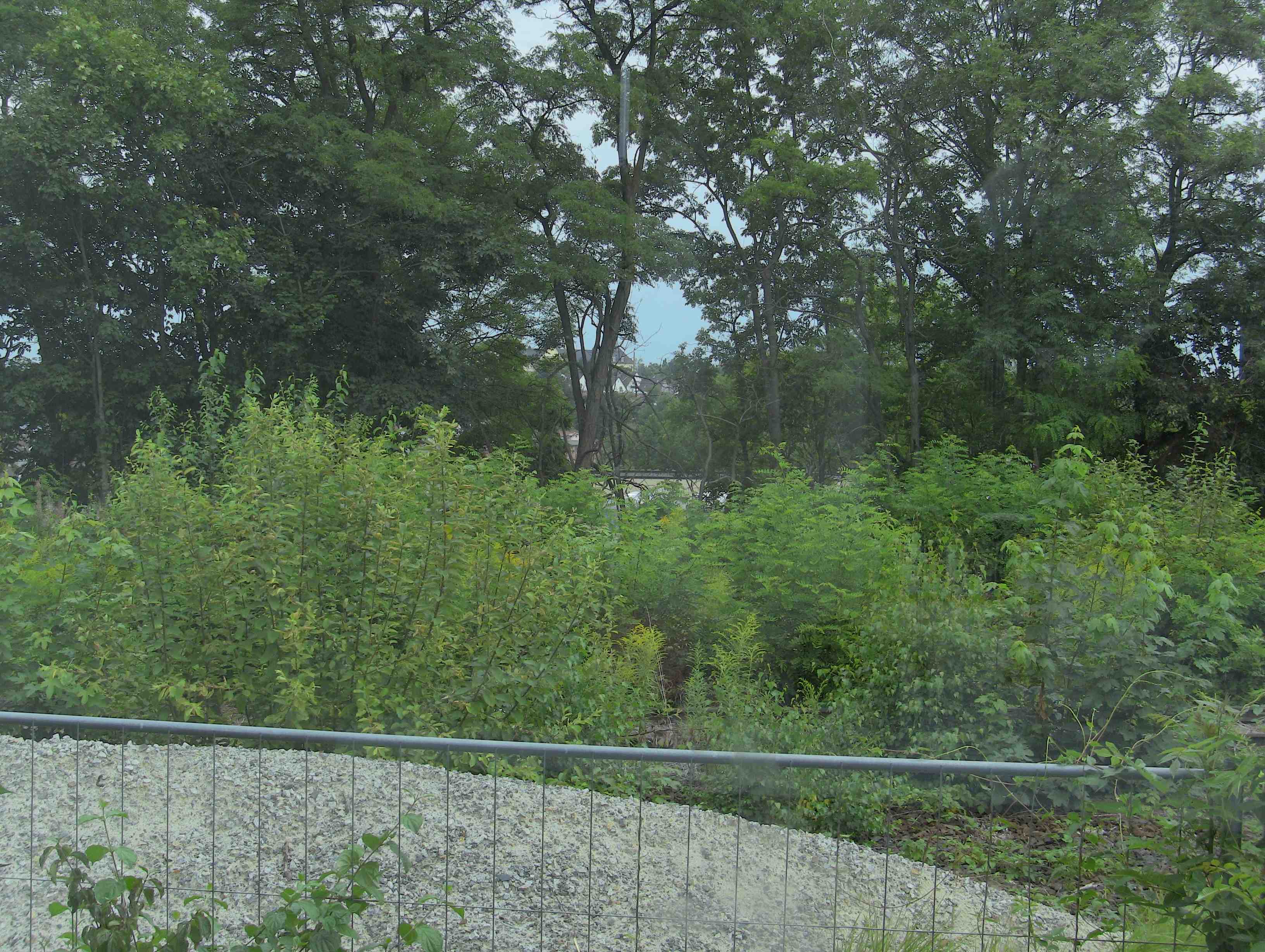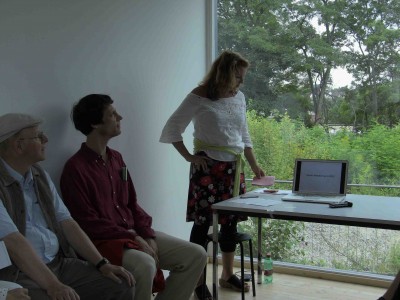In collaboration with Critical Art Ensemble’s Documenta13 project Winning Hearts and Minds
August 5, 2012, 12:00 Kassel, DE
As part of Critical Art Ensemble’s (CAE) project at Documenta 13, Winning Hearts and Minds, I discussed the Hortus Malabaricus in anno 2012. This 17th century 12-volume work magnificently illustrates around 740 indigenous plants from the Malabar coast in India and explains their medicinal properties, with captions in 4 different languages. The performance/lecture took place at a house at the far end of the Hauptbahnhof, close to the railway tracks, as part of CAE’s daily lecture series at 12:00. Keeping in spirit of Documenta13, with its manifold presentations of plants and ‘life’ organisms, I spoke out about the preservation of traditional knowledge and its contemporary usage in preventative medicine. I also presented my exhibitions The Unwanted Land at Museum Beelden aan Zee in 2010-2011 and The Wanted Land from 2012 in David Hall, Fort Cochin, India. These exhibitions are comprised of video installations and indigenous plants that bring the content of the Hortus Malabaricus into the contemporary. I also introduced the online pl atform hortusmalabaricus.net that is not only focused on the Hortus Malabaricus but on its artistic, botanical, medical and political importance in 2012. Lastly I screened my interview with Vandana Shiva, in which she discusses the potency of traditional knowledge, such as the register Hortus Malabaricus. Shiva, a physicist, environmental activist, and eco feminist, based in Delhi, concurs with its usage as a ‘prior art’ in combating the bio-patent industry and furthermore spells out her own research: The importance of preventing the monopolization of seeds is articulated in her Documenta publication, The Corporate Control of Life, No. 012 in 100 Notes-100 Thoughts.
atform hortusmalabaricus.net that is not only focused on the Hortus Malabaricus but on its artistic, botanical, medical and political importance in 2012. Lastly I screened my interview with Vandana Shiva, in which she discusses the potency of traditional knowledge, such as the register Hortus Malabaricus. Shiva, a physicist, environmental activist, and eco feminist, based in Delhi, concurs with its usage as a ‘prior art’ in combating the bio-patent industry and furthermore spells out her own research: The importance of preventing the monopolization of seeds is articulated in her Documenta publication, The Corporate Control of Life, No. 012 in 100 Notes-100 Thoughts.

